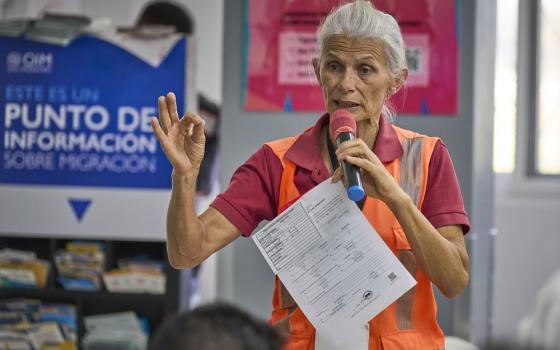CLEVELAND -- An Akron woman who was blocked by the Cleveland Catholic Diocese from holding a protest vigil in a closed church has sued the diocese, claiming it has no authority under state law to close churches without parishioners' consent.
The case, filed by Nancy McGrath, who leads a newly formed Catholic protest group called Code Purple, sets up a battle between church law and civil law.
It could decide whether parishioners have property rights in their parishes or whether Bishop Richard Lennon, whose name appears on parish property deeds, has sole control over all assets.
"It's very well established under Ohio law that a Catholic bishop holds the property of a parish in trust for the parish," said McGrath's lawyer, Robert Gippin. "We're saying he can't dispose of the trust or terminate the assets without the consent of the beneficiaries."
The beneficiaries, said Gippin, are the parishioners and the parish itself.
But the diocese disagrees. "Ohio courts have consistently held that members of a parish are not themselves beneficiaries of the trust and, as such, have no standing to enforce it," the diocese said in a prepared statement.
"Further," the statement said, "civil courts are required to respect the decisions of the church hierarchy in religious matters, such as the closing of a parish, and are constrained from interfering with the inner workings of the church by the First Amendment of the United States Constitution."
A hearing in the case is scheduled for Feb. 16.
The battle comes as Lennon is in the process of shutting down 50 churches as part of a downsizing plan to save money and to better utilize the limited number of priests.
McGrath, who says she is "far from alone in objecting to the bishop's plan," said the bishop has overstepped his authority.
"The bishop has the responsibility to act according to the will of the parishioners," said McGrath. "But he never took into account the will of the parishioners. It's his personal mandates that rule."
The diocese, in its statement, countered, "Ms. McGrath is, of course, free to disagree with church law or how the church conducts its affairs, but she is not entitled to impose upon the church her own views regarding the authority of its bishops."


